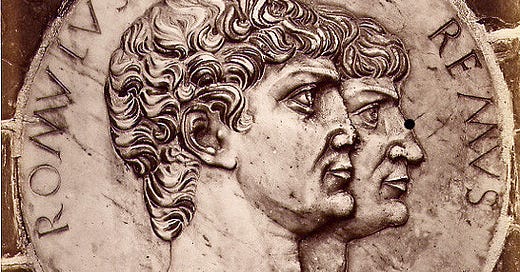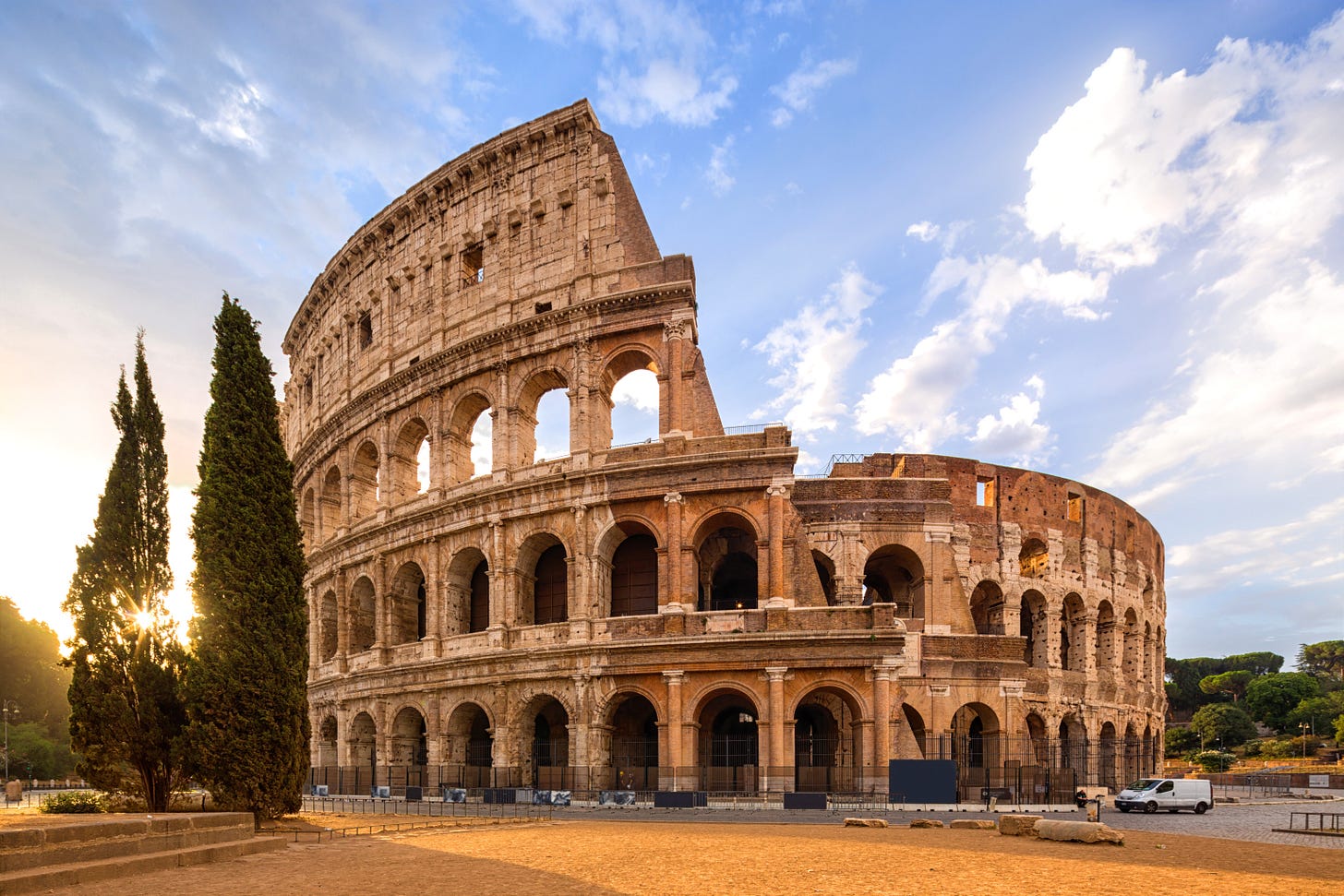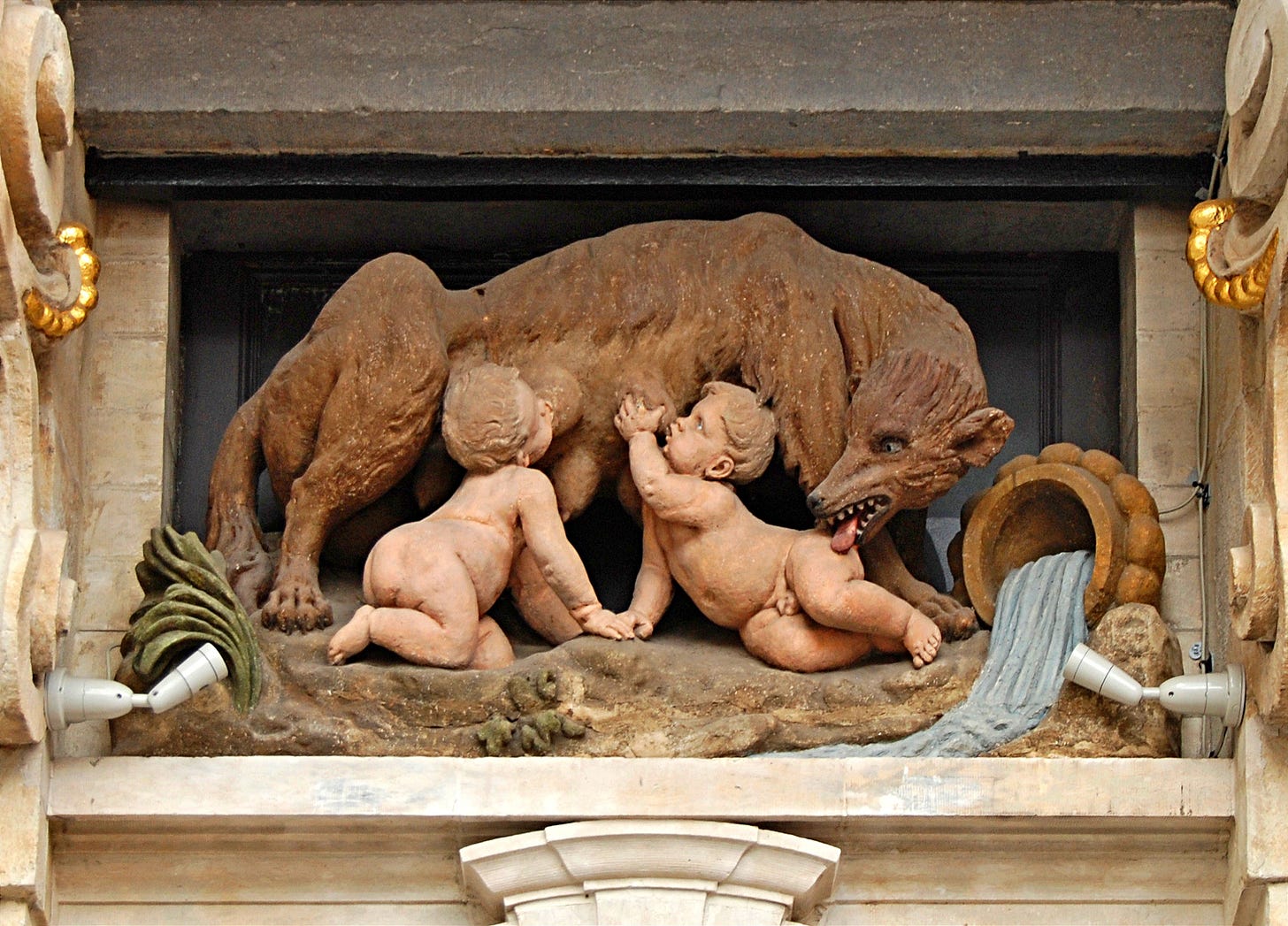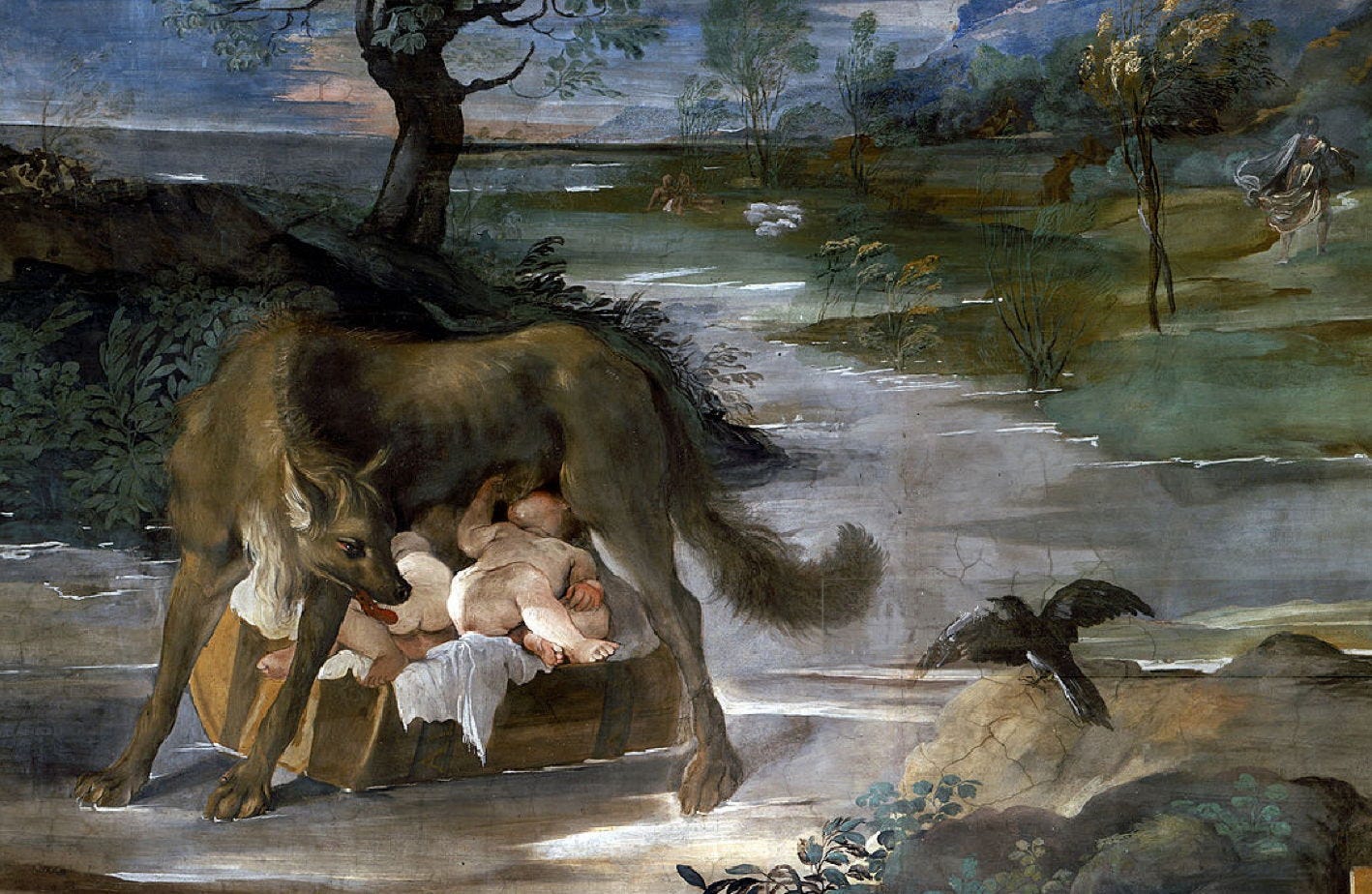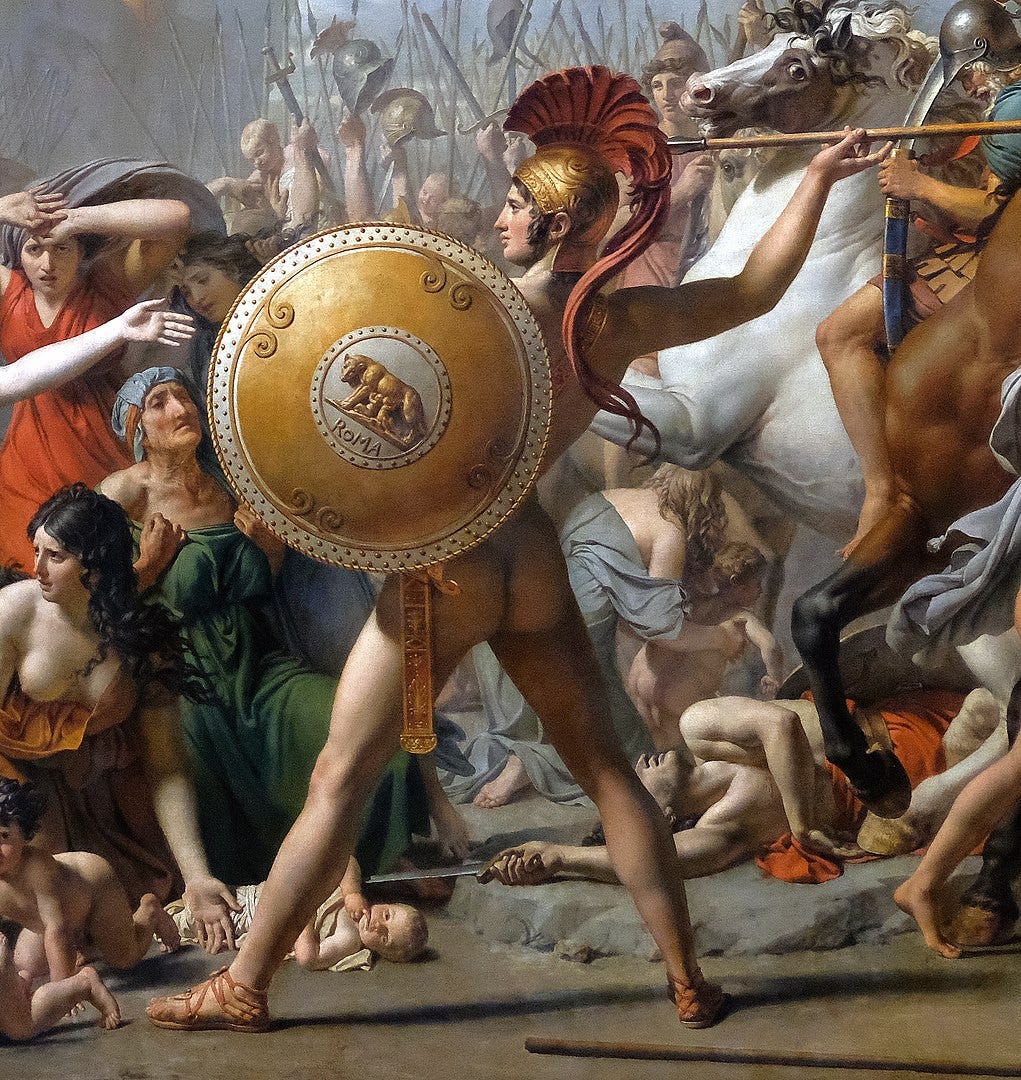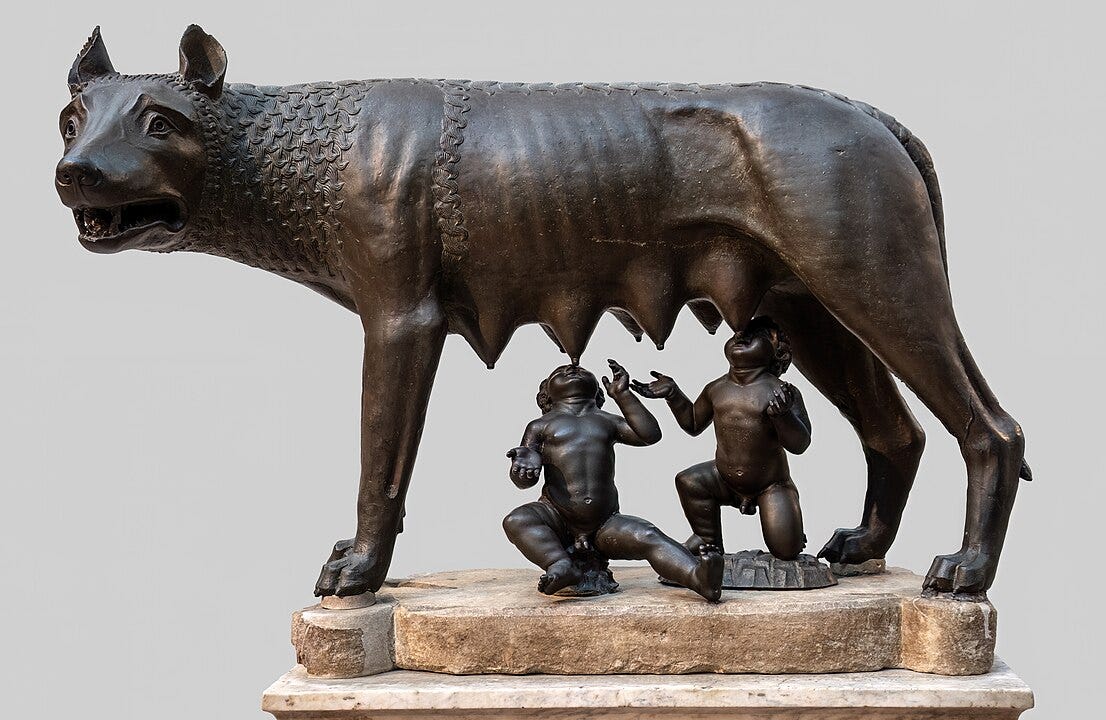Today, we remember Rome as the Eternal City — the cradle of Western civilization, the birthplace of the world’s greatest empire, and the enduring symbol of law, order, and grandeur.
But at the beginning, there was none of that. No legions, no marble, no glory. Just a barren hill and a man with nothing but fugitives, exiles, and outcasts at his side.
So how did it become the greatest city the world had ever known?
The answer lies in the genius vision of Rome’s founder, Romulus. Bereft of everything you typically need to found a city — like an army, citizens, and nobles willing to follow you — Romulus decided to take an unorthodox route.
He did the unthinkable, and the result was nothing less than the Eternal City.
Today, we explore how Romulus forged a people from the margins, gave them purpose, and set in motion the idea that built Western civilization. It’s a heroic story, but it all begins with a rag-tag group of outcasts…
But first — this summer we are hosting our first ever INVICTUS retreat, The History of Rome as Told by Its Heroes.
Come explore the 5 Ages of Rome with us and learn not just about the Eternal City, but the men who made her great.
There’s only 1 spot remaining, so click below learn more about the retreat and apply today:
The Man Before the Myth
Most people remember Romulus for suckling at the she-wolf and murdering his brother. But what truly set him apart wasn’t strength — it was vision.
When he founded Rome, he faced a practical problem: he had no citizens. And worse, there were no aristocrats or noble families willing to partake in his venture. But where other men would have sought to persuade the elites to join them, Romulus instead turned to the other extreme of society.
He threw open his gates and offered asylum to anyone willing to join him. From the hardened criminals to the homeless, all were welcome:
When their city was first founded, they made a sanctuary of refuge for all fugitives, which they called the sanctuary of the God of Asylum. There they received all who came, delivering none up, neither slave to masters, nor debtor to creditors, nor murderer to magistrates, but declaring it to be in obedience to an oracle from Delphi that they made the asylum secure for all men. Therefore the city was soon full of people...
-Plutarch, The Life of Romulus, 9.3
As you might expect, Rome was soon filled with a host of unsavory characters. Yet Romulus didn’t see these men as liabilities — he saw them as raw material. And as he had saved them from their varied predicaments, they all owed him their loyalty and allegiance.
But most importantly, Romulus understood that it didn’t matter where these men had come from — what mattered was what they were willing to do now…
A Sense of Purpose
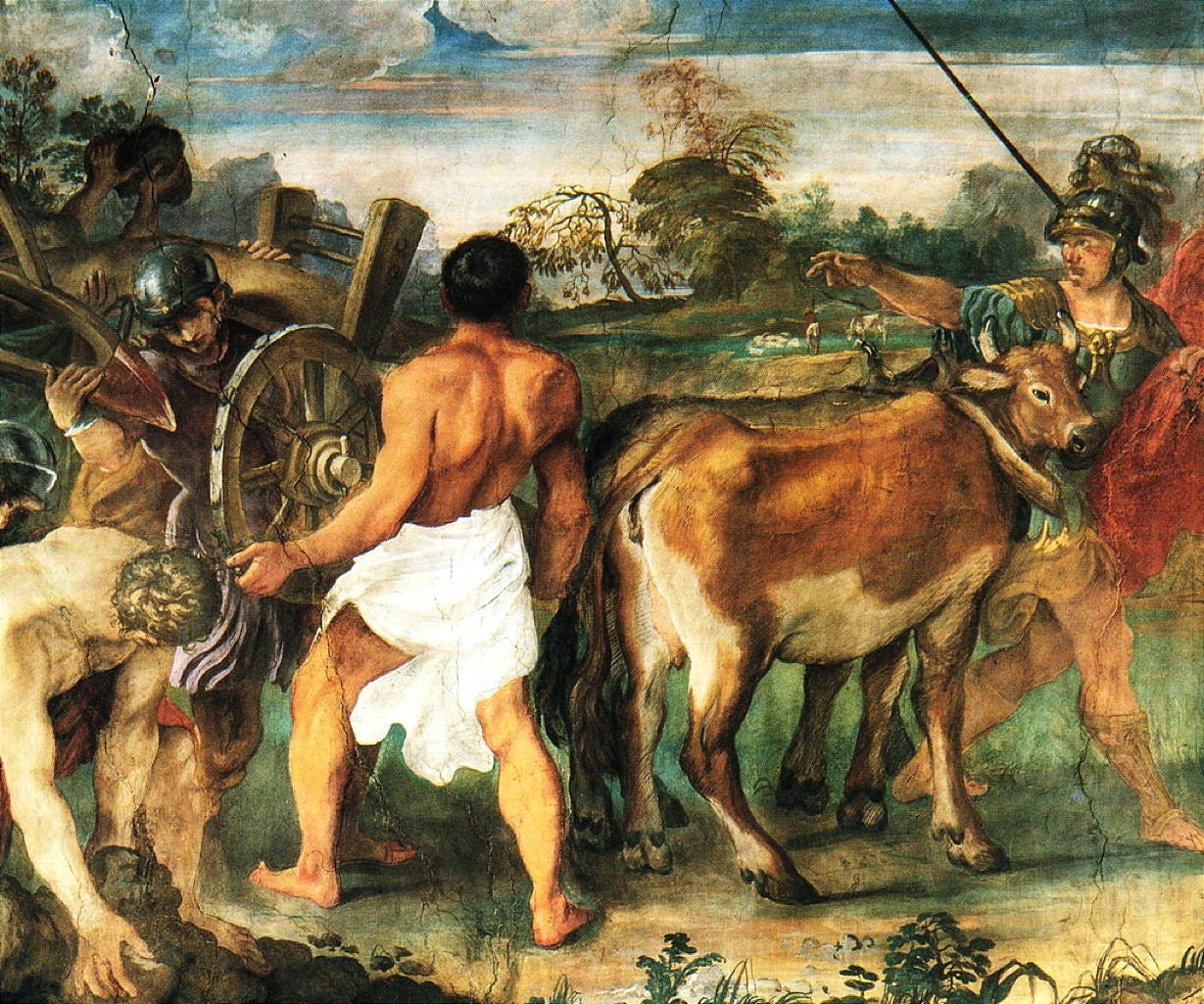
So it was that Romulus offered these outcasts more than shelter. He offered them a mission.
Those who sought refuge in Rome wouldn’t be passive residents. They would instead have a stake in the city, working together to farm, build, and fight. They would erect walls, defend their borders, and call Rome their own.
And through their labor, they would no longer be outcasts. They would be Romans.
This was no act of charity on Romulus’ part. It was instead the purest expression of leadership — the ability to unite people behind a shared purpose, and make them greater than they previously were.
Romulus understood that meaning transforms a man, and that purpose gives him passion. He then channeled this passion by giving the men who came to Rome something worth protecting, i.e. skin in the game. In doing so, he strengthened the bonds of civil camaraderie and ensured his citizens’ loyalty over the long-term.
So it was that a handful of exiles slowly became a people — and how a settlement on a hill began its civilizational ascent...
The Founding Principle of the West
Romulus not only planted the seeds for the foundation of Rome. He also provided the blueprint for its rise to prominence.
After Romulus’ death, Rome went on to absorb tribes, freedmen, and even conquered enemies into its fold. At each step along the way, it offered outsiders a stake in its future — or in other words, skin in the game. The heirs of Romulus didn’t simply seek to dominate, but to assert Roman authority in a way that guaranteed the buy-in of those it conquered.
This transforming of outsiders into insiders became one of Rome’s greatest strengths. Indeed, there is perhaps no greater testament to it than that fact that centuries after the empire’s fall, the Franks — descendants of the brutally conquered Celts — proudly proclaimed themselves heirs of the Romans.
But above all, Romulus proved that civilization doesn’t begin with bloodline — it begins with belief. If you want to build something eternal, you must give people something eternal to build. You must convince them there is a future to be forged, a legacy to be left, and a shot to go from a nobody to a somebody — whether that be ruffian to Roman, or sinner to saint.
Ever since the foundation of Rome, it is precisely this ideal which has led men to build, dare, and sacrifice for the sake of civilization. It is indeed the founding principle of all Western culture — and what must be recovered if it is to endure.
Takeaways
1) See Potential Where Others See Problems
Romulus had no nobles, no aristocrats, and no army. All he had were fugitives and outcasts. But instead of seeing a crisis, he saw raw material — men who, if given direction, could become something more.
Greatness begins not with the right people, but with the right vision — and the courage to demand more from the world around you.
2) Give Them Skin in the Game
Romulus didn’t offer comfort, he offered purpose. The men who found refuge in Rome weren’t asked to spectate, but to sacrifice — to fight for its future, build its walls, and defend its name.
Loyalty is never bought. It’s earned through shared burden — through blood, labor, and belief in something worth keeping.
3) Build by Inclusion, Preserve by Lineage
Romulus didn’t reject the value of family legacy and bloodline — he instead created the conditions for them. By giving outsiders a stake in Rome’s future, he bound them to the city in body and spirit, and gave rise to new families rooted in shared mission.
The task of any founder is twofold: you must first enlist those fit to shoulder the burden, and then help them build something worthy of being passed down from father to son.
Want to dive deeper?
For a visual walk through the story of Rome’s founding, join me and James this Thursday at 9am ET as we go live on X.
Visit my X account at 9am to access the livestream — once it ends, the stream will be added to our Members-Only Video Archive for you to catch the replay.
Tomorrow, our premium subscribers get a deep dive article exploring Romulus’ rise to power. And on Saturday, a breakdown of Rome’s first seven kings, and what they reveal about what it meant to be Roman.
If you’re not already a premium subscriber, please consider joining below:
Ad finem fidelis,
-Evan

